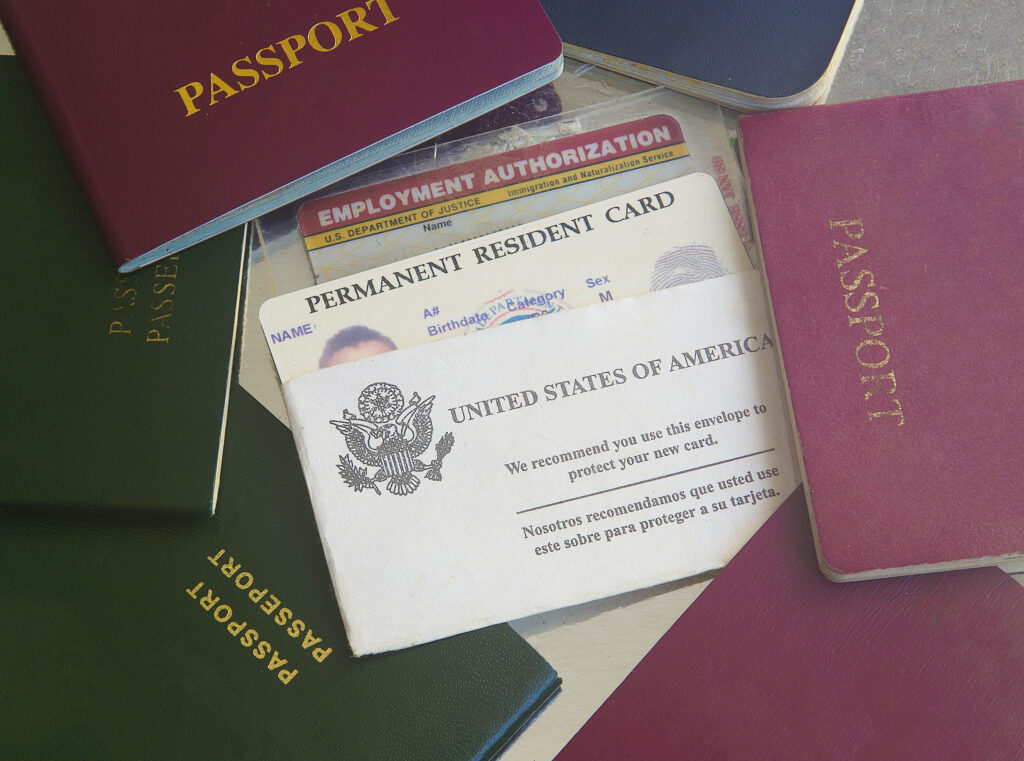

The Information Technology Services sector is a global powerhouse, transcending geographical borders to connect businesses, streamline operations, and drive innovation. However, this international landscape often necessitates the mobility of IT professionals across countries, giving rise to the need for work visas. This document aims to guide companies through the often complex process of hiring foreign workers, ensuring a smooth transition for employees and minimizing business disruption.

Hiring foreign workers can bring numerous benefits to IT companies. As an immigration law firm, we’ve seen firsthand the positive impact of international employees on businesses.
Unique Skill Sets and Perspectives: Foreign workers often bring diverse talents and perspectives that foster innovation and improve service quality. Their contribution to diversity of thought leads to new ideas and enriches the work environment.
Global Market Understanding: Foreign IT professionals have an understanding of the global market, enabling companies to expand services in different regions. This international perspective is crucial in the highly globalized IT sector.
Specialized Knowledge and Skills: Moreover, they often possess specialized knowledge, qualifications, and skills that might be in short supply within the domestic labor pool. This wider talent pool can mean organizations are better equipped to tackle new challenges and explore novel opportunities.
Filling Workforce Gaps: Hiring foreign workers helps fill gaps in the local workforce, especially in areas with skill shortages. This ensures access to a broad pool of qualified professionals to meet evolving needs.
Our firm has assisted countless businesses in navigating the intricacies of hiring foreign personnel. We firmly believe that a diverse workforce is a powerful resource, and we are dedicated to helping our clients leverage this potential.

Hiring foreign workers in the IT industry involves several key steps and varies depending on the specific circumstances of both the company and the prospective employee.
Identifying the Need: The hiring process starts by identifying the need for a foreign worker in your organization. This could be due to a skills gap, the need for a unique perspective, or growth into a new international market.
Understanding Visa Requirements: Next, it is crucial to understand the visa requirements for the particular country where your business operates. Visas are legal permissions granted by a country’s government, allowing foreign nationals to work within their borders. The type of visa required depends on the role, the duration of stay, and the worker’s nationality, among other factors.
Sourcing Candidates: Companies can source candidates through various channels such as job boards, recruitment agencies, or internal referrals.
Application Process: Once you’ve identified a suitable candidate, the next step is to initiate the visa application process with the United States Citizenship and Immigration Services (USCIS). This typically involves submitting relevant documentation from both the employer and the employee to the respective immigration authority.
Legal Compliance: It is fundamental to comply with all legal requirements and obligations when hiring foreign workers. This includes respecting labor laws, ensuring fair wages, and creating an inclusive work environment.
Integration and Support: Finally, once the visa is approved and the foreign worker is on board, it’s important to provide support to help them integrate into their new environment.
Remember, this is a general guide, and specifics can vary depending on the circumstances. Always consult with an immigration or legal expert when navigating the complexities of hiring foreign workers in the tech industry.
A work visa is an official document or permit granted by a foreign country’s government that allows a foreign national to legally work in that country for a specific period. It serves as evidence that the holder has been authorized to be employed in a profession for which they are qualified. Typically, work visas are tied to a specific job offer, and the type of work visa required often depends on factors like the nature of the job, the duration of employment, and the qualifications of the worker. For instance, in the United States, popular work visas include the H-1B for specialty occupations and the L-1 for intracompany transferees. It is essential to remember that the process and requirements for obtaining a work visa vary by situation, so consultation with an immigration expert is highly recommended.
This non-immigrant visa is used by U.S. companies who wish to employ graduate-level workers in specialty occupations that require theoretical or technical expertise in specialized fields such as IT, finance, engineering, mathematics, medicine, etc. The H-1B visa has an annual cap except for certain exempt categories.
The L-1 visa allows intra-company transferees to work in the U.S. They must be at the managerial or executive level or have specialized knowledge and be destined to a position within the same company or one of its subsidiaries, affiliates, or parent companies.
These visas are for treaty traders and investors coming to the U.S. to carry out substantial trade between the U.S. and their home country or to develop and direct the operations of an enterprise in which they have invested a substantial amount of capital.
With a TN Visa, under the USCMA (formerly NAFTA), citizens of Canada and Mexico are eligible to apply to enter the U.S. to work in a professional capacity for certain IT-related positions
The O-1 visa is for individuals with extraordinary ability or achievement in the sciences, arts, education, business, or athletics or a demonstrated record of extraordinary achievement in their field. This can be used for high-level and accomplished IT professionals.
Specific to Australian nationals, this visa requires the individual to work in a specialty occupation that requires the theoretical and practical application of a body of highly specialized knowledge.
These are employment-based immigrant visas for foreign professionals with advanced degrees, exceptional ability, or skilled workers who have a permanent job offer from a U.S. employer, and meet other eligibility criteria.

The requirements for acquiring a work visa will depend on the type of visa and the specifics of the individual situation. However, there is generally a set of requirements that must be fulfilled by both the employer and the prospective employee.
Petition Filing: Employers must file a petition with United States Citizenship and Immigration Services (USCIS) on behalf of the foreign worker. The type of form used to file the petition can vary based on the visa type.
Prevailing Wage Determination: For some visa types, like the H-1B, employers are required to pay the foreign worker at least the prevailing wage, which is the average wage paid to similarly employed workers in a specific occupation in the area of intended employment.
Job Offer and Sponsorship: The employer often needs to provide a formal job offer and agree to be the visa sponsor. This involves taking responsibility for the foreign worker while they are in the United States.
Compliance with Labor Laws: Employers must comply with all relevant labor laws, ensuring fair wages and working conditions and that the employment of foreign workers does not adversely affect the job opportunities, wages, and working conditions of U.S. workers.
Qualifications: Employees must possess the necessary qualifications for the job. For example, H-1B visa applicants typically need a bachelor’s degree or higher in the specific specialty that the employment position requires.
Documentation: Employees must provide necessary documents such as a valid passport, application forms, job offer letter, and proof of their qualifications.
Interview: If the employee is outside the U.S., they are required to attend an interview at the U.S. embassy or consulate in their home country.
Remember, this is a general guide. Always consult with an immigration or legal expert when navigating the complexities of visa requirements, as they can vary significantly depending on the circumstances.

At Bashyam Global Immigration Law Group, our seasoned immigration lawyers are committed to guiding you through the intricate process of hiring foreign workers. We understand the importance and value foreign workers bring to the engineering industry, and we’re here to help you navigate the complexities of the U.S. immigration system effectively and effortlessly. Our team assists in many corporate visa services.
Partnering with Bashyam Global Immigration Law Group means securing professional, timely, and dedicated assistance in all your immigration-related endeavors, maximizing your chances of harnessing global talent, and driving your business forward.

In a complex and fast-changing immigration landscape, having knowledgeable and reliable legal assistance is crucial. At Bashyam Global Immigration Law Group, we are your trusted immigration lawyers, dedicated to ensuring your business is well-equipped to navigate the challenges of hiring foreign workers. Contact us today for any immigration-related queries or concerns you may have. Let us guide you through this intricate process, providing the clarity you need to make the best decisions for your business.